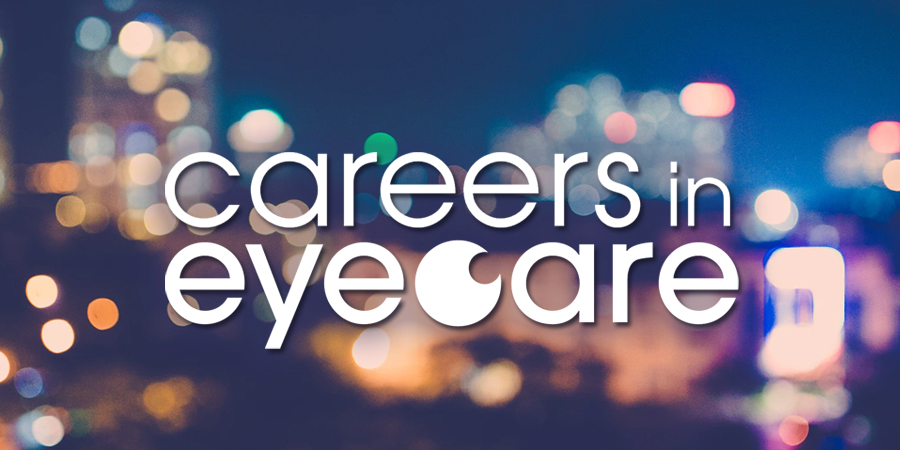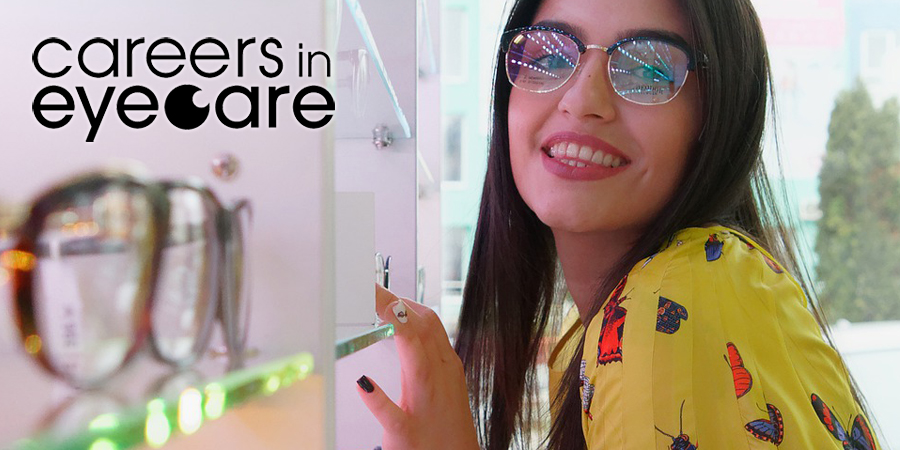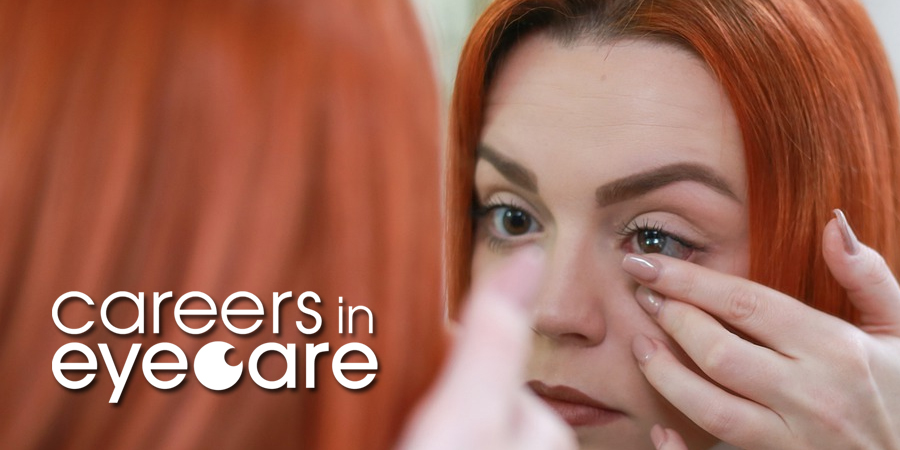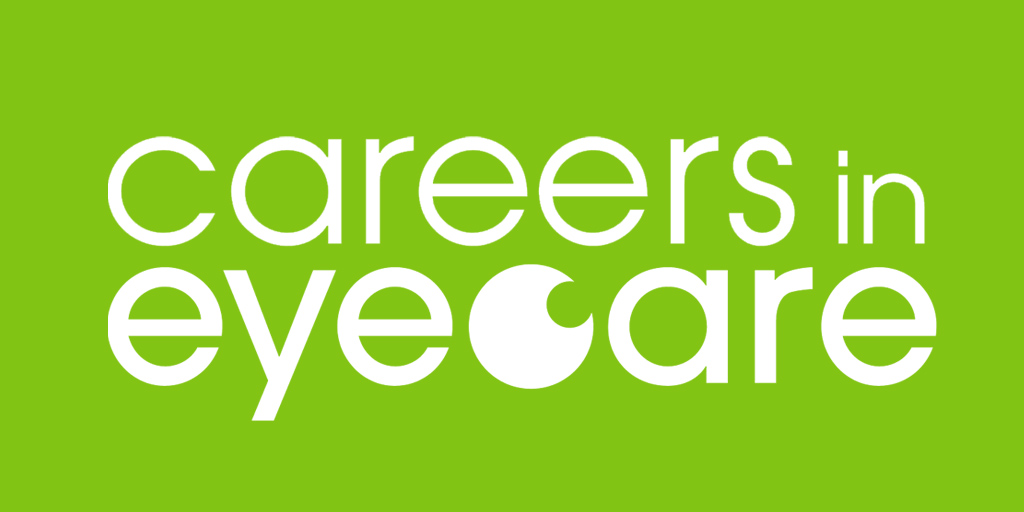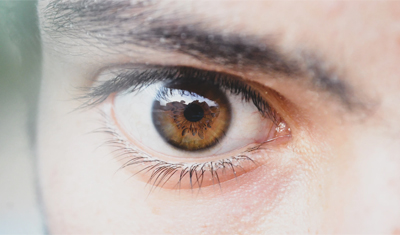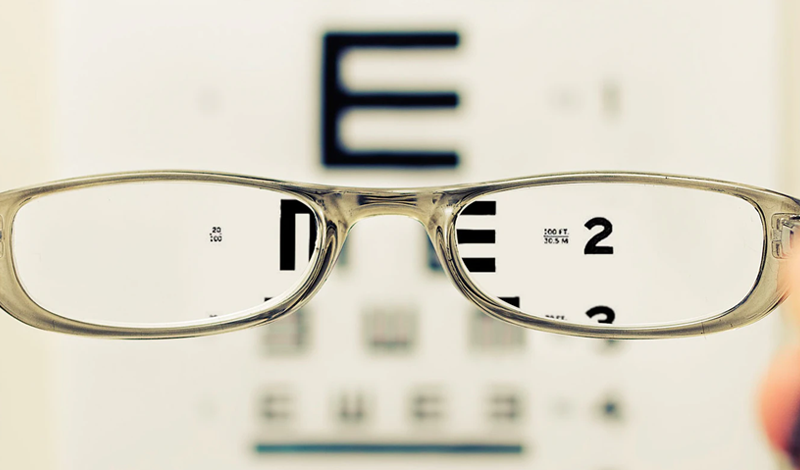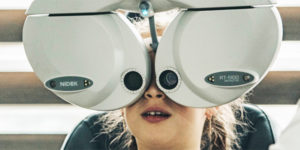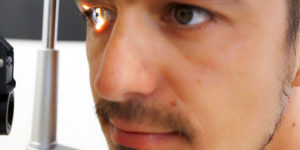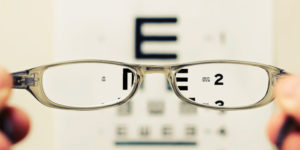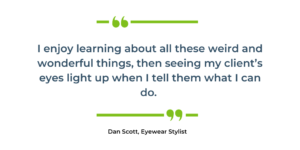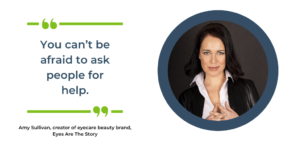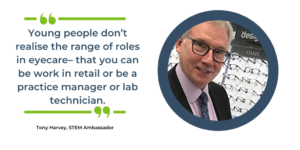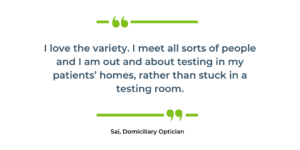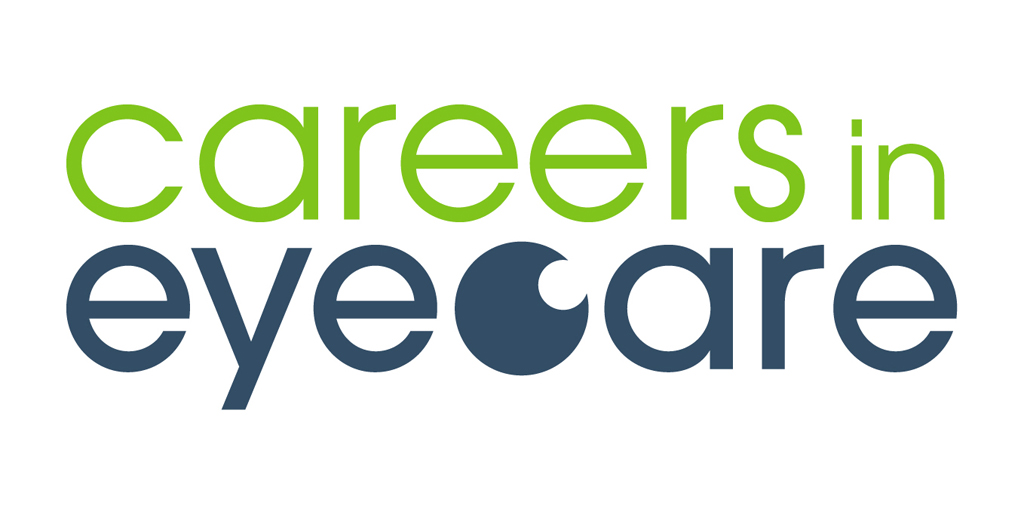Careers in Eyecare Science & Health careers Retail careers
How to become an Optical Sales Rep: Career Guide
What is an Optical Sales Representative?
An optical sales representative is responsible for promoting the lens, frame or contact lens range of a manufacturer to optical practice owners.
What does an Optical Sales Representative do?
An optical sales rep needs to be outgoing and passionate about optics. You may need to be technically or clinically minded if you are representing a lens or contact lens company. Those representing a frame company will benefit from an eye for style. Overall, you need to sell frames or lenses into a practice that will ‘sell out’ delivering good profit and maximum wearer satisfaction, helping grow the customer’s business.
You will need to have superb communication skills. A frame or lens rep will need to be great with people and enjoy being on the move every day. You will need to have good organisational and administrative skills, ensuring customers are kept up to date with the latest information. You will also need to manage a regular programme of visits to customers, and may need to ensure that the customer is receiving their orders in a timely manner and is happy with the products and services.
Your focus is on customer service as well as commercial aspects. Commercially minded, you will be familiar with key performance indicators (KPIs) and targets. You will take responsibility to drive forward sales whilst maintaining customer satisfaction. You will work closely with some customers to help them maximise sales and develop business. You may manage/coach a team of other reps and train and mentor them.
You will need a driving license, and may need to carry cases of samples with you.
What do you get from this role?
The job can offer a range of different working patterns. It gives you a chance to interact with people and know that you are making a difference to the public by promoting eyewear and ensuring that practice staff are up to date with the latest styles, information and advice.
You can be instrumental in the success of the business you work for through planning and the achievement of KPIs, and can build positive relationships with customers as you help their businesses succeed too.
What do you need to apply?
Whilst there may not be any educational requirements, it is likely that you will have some previous experience in optics or sales. A qualification such as dispensing optician or contact lens optician may be required to represent lens or contact lens businesses.
What skills do you need?
You will be energetic and commercially focused. You will have a passion for eyecare. You will have excellent communication skills. Great customer service will be one of your goals.
You need business skills to determine how your frame or lens portfolio can assist a practice as part of its commercial eye care model. You will be trained to assist in the buying decision process, and your employer will supply you with information to support your work and your clients. Another key skill is understanding stock-turn impact on profitability, how to calculate this and apply this to a practice.
You may need skills in proposal writing, training and giving presentations. To be able to present onsite training to practices in a confident manner is also a requirement.
You need to be able to understand your customer’s objectives
It is essential to have exceptional knowledge of your product including design, materials and the manufacturing processes – many optical reps start by working on practice as an optical assistant or train as a dispensing optician.
Being self-motivated with a positive attitude is also a requirement. You can spend a lot of time on the road so liking your own company is always an advantage!
What does your working day look like?
You will start the day with a list of customers to contact.
You will make phone calls and drive to visit different customers in their practice.
You will need to spend time dealing with customer orders and administration.
You may need to deal with customer service issues.
You will monitor business and individual performance.
Discover a day in the life of frame rep Liz Shepherd here.
How may a training programme work?
There may be many in-house training and development opportunities for you.
In addition, ABDO offers Management & Leadership training courses accredited by the Chartered Management Institute (CMI) and leading to a recognised qualification.
Careers in eyecare - FAQs
There are a number of people who work in an optical practice:
- the optometrist
- the dispensing optician
- optical assistants (often more than one)or receptionists.
In some practices you will also find a laboratory where optical technicians make spectacles.
Click the links to find out more about these eyecare careers and how you can get into them!
There are a number of people who work in an optical practice!
The first person you will meet is likely to be the receptionist who can book your appointment.
You may also meet an optical assistant in the front of the practice. They can assist you to choose frames and lenses and some (as can an optical sales representative). They may also be trained to carry out initial assessments before your eye test.
The optometrist is the person who examines your eyes. They will then pass you on to the dispensing optician who is trained and qualified to offer the best advice on frames and lenses to suit your lifestyle and prescription.
In some practices you will also find a laboratory where optical technicians make spectacles. When you return to collect your new specs they may be fitted by the dispensing optician or an optical assistant.
If any of these eyecare careers sound like something you might be interested in, click the links to find out more.
A dispensing optician (DO) advises on, fits and supplies the most appropriate spectacles after taking account of each patient’s visual, lifestyle and vocational needs.
Dispensing opticians also play an important role in advising and dispensing low vision aids to those who are partially sighted as well as advising on and dispensing to children where appropriate.
They are also able to fit and provide aftercare for contact lenses after undergoing further specialist training.
Career opportunities also exist to develop business skills in marketing and practice management.
See how to become a dispensing optician!
Dispensing Optician Career GuideWhat is a contact lens optician?
A contact lens optician (CLO) is a specialist practitioner who is trained and qualified to fit, and provide aftercare for, patients with contact lenses. Contact lens opticians assess whether contact lenses meet the needs of the person, resolving clinical and tolerance issues, and remain responsible for clinical decisions enabling them to provide continuity of care.
The contact lens speciality is open to dispensing opticians only and involves extra study and clinical practice. Once the specialist training is completed and competence assessed, practitioners must register their speciality with the General Optical Council. They are then able to perform additional duties to those of a dispensing optician.
How do I become a contact lens optician?
Once you have qualified as a dispensing optician you can go on to study and specialise in fitting contact lenses to help you become a contact lens optician.
This course is delivered by a method called ‘blended learning’ that consists of practice based learning, block release and distance learning coursework. You receive coursework material to work through and assignment questions to answer for each part of the course. A personal tutor will mark it for you and return it to you with feedback. As the course is at advanced level, you will also need to undertake some additional research and read around the subject in order to gain a thorough understanding of the subject.
While you are studying for your CL Cert you will be training in contact lens practice. You and your supervisor will be issued with a workbook to guide you both through this part of your training. You will learn practical skills from your supervisor and work with patients in practice (under supervision) to perfect these skills. To become a contact lens optician, you will also need to complete a set number of case records that you build up over a one-year period and makes up a part of your final examinations.
The approved training course for the contact lens speciality is run by ABDO College and Bradford College.
See how to become a contact lens optician!
Contact Lens Optician CareersA low vision optician is a dispensing optician who has additional qualifications to support people who are blind or partially sighted, offering advice, assessment and relevant equipment to allow them to make the most of the sight that they have.
Low vision courses are offeed by ABDO College and WOPEC.
See how to become a low vision optician with our career guide.
Low vision optician careersWhat does an optical assistant do?
An optical assistant works under supervision in an optical practice to assist people with choosing frames and lenses. Some optical assistants also have training to allow them to carry out initial assessments before an eye examination such as autorefraction.
How do I train to become an optical assistant?
If you are interested in becoming an optical assistant, you need to apply for a position in an optical practice that offers on the job training. As you work you will be given the chance to study for a optical assistant qualification via ABDO College.
See how to become an optical assistant.
Optical assistant careers guideWhat does an optical technician do?
An optical technician is trained and qualified to make or ‘glaze’ spectacles. They work in an optical lab which may be attached to an optician’s practice. They may also progress within industry to become senior management in optical manufacturing organisations.
How do I train to become an optical technician?
If you are interested in becoming an optical technician, you need to apply for a position in an optical lab that offers on the job training. As you work you may be given the chance to study for a qualification or complete an apprenticeship.
Optical technician careersOptometrists study a three or four-year degree course at a university. There are ten universities that currently offer training in Optometry.
After completing the degree, trainee optometrists need to go on to complete a pre-registration year where they practice under supervision of a qualified optometrist, write up case records and take further practical exams.
All optometrists need to be registered with the General Optical Council.
See how to become an optometrist with our career guide.
Optometrist careersThe eye and visual system can be affected by a range of clinical conditions. Ophthalmology is a branch of medicine dealing with the diagnosis, treatment and prevention of diseases of the eye and visual system. There are a number of professions associated with this area of work. For example, you could train to become an opthalmologist, ophthalmic nurse, or orthoptist.
What is an ophthalmologist?
An ophthalmologist is a trained doctor who specialises in eyes.
What is an ophthalmic nurse?
An ophthalmic nurse has qualified as a nurse before going on to specialise in eyes. You will find them in a hospital eye clinic, providing care for people with eye diseases.
What is an orthoptist?
An orthoptist specialises in investigating, diagnosing and treating defects of binocular vision and abnormalities of eye movement. You will find most orthoptists working in a hospital setting, helping children who have squint or lazy eye (amblyopia).
Click the links to find out more and explore possible routes into these careers.
An eye clinic liaison officer (ECLO) is based in an eye clinic. They are there to talk to people who may be newly diagnosed with sight loss, and to help them get emotional and practical support from local voluntary organisations, health and social care. Eye clinic liasion officers can help you understand more about your eye condition.
ECLO career guideYou have lots of options when it comes to exploring a career in eyecare after school. You don't always need a degree - you can take your next steps through alternative routes, from traineeships to apprenticeships and beyond. These tips can help you get started -
Results day tips - what next if you didn't get the grades for university?
Job application tips - DOs and DON'Ts
How to prep for job interviews - example interview questions
Tips on using traineeships to build skills and experience
Tips for successful online learning
Tips for successful Optical Assistant apprenticeships
Eyecare career guides
These eyecare career ideas could be a great match for you. See what's involved and how to get started...-
Contact Lens Optician – ABDO Careers in Eyecare
-
Dispensing Optician – ABDO Careers in Eyecare
-
Eye Clinic Liaison Officer (ECLO) – ABDO Careers in Eyecare
-
Lens Designer – ABDO Careers in Eyecare
-
Low Vision Optician – ABDO Careers in Eyecare
-
Ophthalmic Nurse – ABDO Careers in Eyecare
-
Ophthalmologist – ABDO Careers in Eyecare
-
Optical Assistant – ABDO Careers in Eyecare
-
Optical Laboratory Technician – ABDO Careers in Eyecare
-
Optical Practice Manager – ABDO Careers in Eyecare
-
Optical Sales Representative – ABDO Careers in Eyecare
-
Optometrist – ABDO Careers in Eyecare
-
Orthoptist – ABDO Careers in Eyecare
-
Vision Rehabilitation Assistant – ABDO Careers in Eyecare
Eyecare career tips and insights
YES! I Want More Free Careers Help...
So what are you waiting for? Grab your future.


